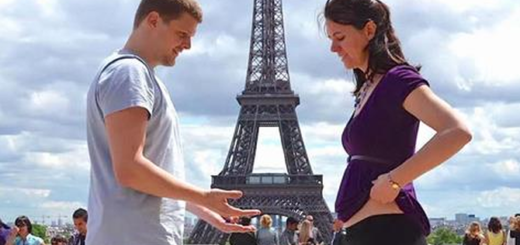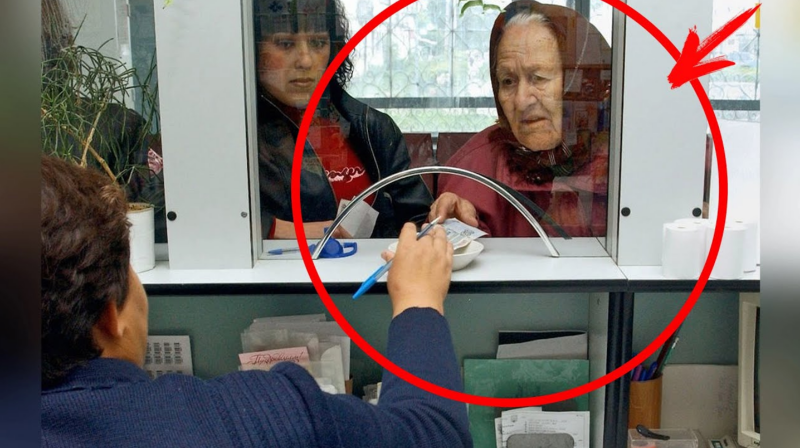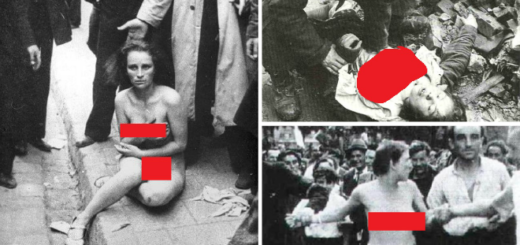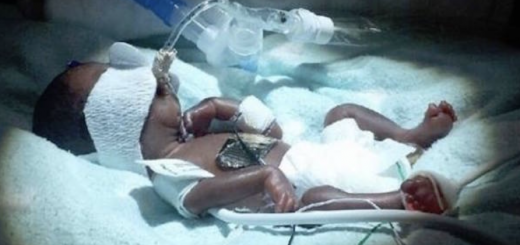One afternoon, he stayed a little longer. The street was quieter, and no one else was waiting in line. «Madam Ngozi,» he said, reading her name from the small sign on the stand. «Do you rest at all? You’ve been here since morning.»
Ngozi wiped her hands on her apron. «I rest when I get home.»
Emeka frowned. «You shouldn’t work this hard alone. Do you have any help?»
«No,» she replied. «But I’m used to it.»
There was silence for a moment. Then he spoke again. «If I’m being too forward, forgive me. But are you married?»
Ngozi’s heart skipped. She looked away. «I was,» she said quietly.
Emeka nodded slowly. «Sorry, I didn’t mean to bring up anything painful.»
Ngozi sighed. «It’s not your fault.» He stood quietly for a few seconds, then cleared his throat. «Well, just know, you seem like someone with a good heart. Strong too. I admire that.» Then he smiled, waved, and walked off.
That night, Amaka noticed something. «Who’s the man that always comes to buy food?» she asked, her eyes full of mischief.
Ngozi shook her head. «He’s just a customer.»
«Are you sure?» Amaka smiled. «Because the way he looks at you…»
Ngozi rolled her eyes. «Don’t start.»
But Amaka wasn’t wrong. Over the next few weeks, Emeka didn’t just come for rice. He brought gifts: plantain, onions, sometimes bottled water. He said it was to support the business. And slowly, Ngozi started to talk more. She told him about her food journey, about how she learned to cook from her mother, about how she used to dream of opening a restaurant.
One afternoon, Emeka sat on a plastic chair beside her stall. «Ngozi,» he said. «Forgive me again if I’m overstepping, but I see something special in you.»
Ngozi looked down, unsure of what to say.
«I was married too,» Emeka said. «Years ago. My wife died in a car crash. I haven’t tried to love anyone since. Until recently.» Ngozi’s eyes widened. «You remind me what peace looks like,» he continued. «Not the loud, flashy kind. But the quiet one that sits in your chest and makes you feel at home. I don’t want to rush you. I just wanted you to know.»
Ngozi didn’t reply for a long time. She looked at her hands. Then at the pot of rice. Then at him. «I’m scared,» she whispered.
«I know,» Emeka said gently. «But I’m not Chaik. I won’t break your heart.»
It took months. But eventually, Ngozi said yes to coffee. Then to dinner. Then to long walks on Sunday evenings. And one day, as they sat under a tree near the park, she looked at him and asked, «Why me? You could have chosen anyone.»
Emeka smiled. «Because you are the most real person I’ve met. You carry pain, but you still smile. You were broken, but you didn’t stay down. That’s the kind of woman I want beside me.»
Ngozi’s eyes filled with tears. She reached for his hand and held it tightly. «Then I want to try too,» she said.
They got married six months later. A small, quiet ceremony. No big cake. No music. Just a few close friends and family. Amaka was the loudest one there, dancing like she had just won the lottery. «I told you!» she shouted. «I told you good things will still come!»
Their new life was peaceful. Emeka was soft with her. He made her laugh. He listened to her stories. He helped her expand her food business into a proper shop. Every morning before work, he kissed her forehead and said, «I love you, my queen.» For the first time in years, Ngozi felt safe.
And then, the unexpected happened. One morning, she woke up feeling strange. Her body was weak. She couldn’t stand for too long. The smell of stew made her sick. She brushed it off. Maybe it was malaria. But when it continued for two weeks, Emeka said, «Let’s go to the hospital.»
At the clinic, they ran tests. She waited on the bench, biting her nails. The nurse returned with a wide smile. «Congratulations, madam,» she said. «You’re pregnant.»
Ngozi froze. «Pregnant?»
«Yes,» the nurse nodded. «Three weeks.»
Ngozi covered her mouth, tears pouring from her eyes. Emeka jumped to his feet. «Pregnant? Are you serious?»
The nurse laughed. «Very serious.» He turned to Ngozi, pulled her up and hugged her tightly. «You’re going to be a mother,» he whispered. «We’re going to be parents.»
Ngozi couldn’t stop crying. The joy was too much. She held his shirt and cried like a baby. The months that followed were full of excitement. But the biggest surprise came during her scan. As the doctor moved the probe over her belly, his eyes widened. «Madam, there are three heartbeats.»
Ngozi sat up. «Three?»
«Yes,» the doctor said. «You’re carrying triplets.»
She screamed. The whole hospital probably heard her. When they got home, Emeka knelt and cried. «God, you’ve done too much. Three children at once. This is more than I asked for.»
They prepared carefully. Emeka built a nursery. Amaka came to help. The neighbors brought gifts. And on a calm Saturday morning, Ngozi gave birth to three healthy boys. Tears flowed freely. The nurses clapped. The doctor smiled. And Emeka couldn’t stop laughing.
«They look like you,» he said, holding one of the babies. «But I’m keeping this one. His ears look like mine.»
Ngozi held all three to her chest, crying silently. «I’m not barren,» she whispered. «God proved them wrong.»
Word spread fast. People from her old street came to see the miracle. Even some of Chaik’s friends heard about it. «She had triplets?» they asked. «That woman that Chaik threw out?»
«Yes, oh,» someone would reply. «She even opened a new restaurant. Her husband is rich and kind.»
Some people smiled with joy. Others shook their heads with regret. But Ngozi wasn’t thinking about the past anymore. She was holding her sons. She was kissing Emeka. She was feeding her babies in the early hours of the morning, smiling at their tiny hands and soft cries. Her scars were still there. But now, her life had changed. She was no longer the broken woman crying on the street. She was a mother. She was whole. She was free.
While Ngozi was learning how to hold a baby with one hand and feed two others with the other, far away in another part of town, Chaik was sitting inside his office, spinning slowly in his leather chair and looking at his phone screen. His business had grown. The company cars were newer, his clothes were more expensive, and his bank account was bigger. But there was one thing that still troubled his heart, something that money couldn’t buy.
He was still without a child. After throwing Ngozi out, he had expected his life to move on quickly. He believed once he got a new woman, one who could give him children, everything would fall into place. But it didn’t. He had dated three different women in the last three years. None of them got pregnant. One even left him after a year, saying she couldn’t live in a house where the man’s mother treated her like a baby factory.
His mother, Mama Chaik, was now older but still sharp with her tongue. «You’re not serious,» she always said. «You’re choosing fashion over family. When I picked Ngozi for you, I told you to be patient. You were the one who ran her off.»
Chaik would always grow angry. «Don’t mention that woman to me again.» But late at night, when everyone had gone home and the house was quiet, his mind would wander. Where was she now? Did she remarry? Did she find joy?
One morning, while scrolling through Instagram, he saw a picture that froze him. A baby’s leg. Then another photo, tiny fingers holding a woman’s thumb. He stared at the pictures, trying to be sure. The hand in the photo looked like Ngozi’s. The skin, the way she held the baby. «It couldn’t be. No, it’s just a coincidence,» he told himself.
But he kept thinking about it. So he decided to block it out with something stronger: another woman. That same week, his friend Kunle called him. «Guy, there’s someone you need to meet,» Kunle said over the phone.
«Who?» Chaik asked lazily.
«Her name is Adeora. She just moved back from Lagos. Fashion designer. Rich family. Very fine. Very classy. And guess what? She wants a serious man, not just all those Instagram boys.»
Chaik laughed. «You’re selling her like she’s a car.»
«I’m serious,» Kunle said. «She’s different. You’ll like her.»
Chaik sighed. «Fine, set it up.»
They met at a fancy restaurant two nights later. Adeora was exactly as described. Tall. Beautiful. With long curly hair and nails painted gold. She wore a gown that looked like it came straight from Paris. But what caught Chaik’s attention wasn’t her looks. It was the way she spoke: confident, bold, like someone who knew what she wanted.
«So, you’re the famous Chaik,» she said with a small smile, swirling her wine glass.
«And you’re the Adeora everyone keeps talking about,» he replied.
They spoke for two hours. About business. About travel. About life. But the topic Chaik brought up, almost by force, was family. «I’ve been ready for children since forever,» he said. «I just haven’t found the right woman.»
Adeora raised her brow. «You were married before, right?»
«Yes,» Chaik said quickly. «But she… she couldn’t give me a child. We tried for years.»
Adeora said nothing. She just nodded. Then she smiled again. «I’m not in a hurry. But I do want children. Maybe two. Or three.»
Chaik’s heart jumped. «Same here.»
Within a month, they were seen together everywhere. At weddings. At business launches. Even at church. People started whispering, «Chaik has finally moved on.» He started spoiling her, buying her dresses, phones, even a car. One day, Adeora said, «Let’s not waste time. If we’re serious, let’s do it.»
«Do what?» Chaik asked.
«Marriage,» she said, sipping her juice like it was nothing.
Chaik stared at her. «You’re ready?»
«I’m a grown woman,» she said. «I know what I want. I don’t believe in dating for ten years. If you want me, show me.»
That night, Chaik called his event planner. The wedding preparations began immediately. Everything had to be perfect. It was going to be the biggest wedding in town. Red carpet. Rolls-Royce. A live band from Ghana. Guests flying in from Abuja and Dubai.
























































